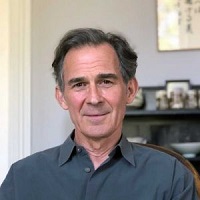
Keep Questioning the Truth | Rupert Spira
Join Rupert Spira as he dives into the fascinating journey of questioning and understanding our true selves! Discover how embracing our questions can lead us to deeper truths and a sense of peace that feels just right.
Rupert Spira is an English teacher of the “direct path”, a method of spiritual self-inquiry through talks and writing, and a notable English studio potter with work in public and private collections. From an early age, Rupert Spira was deeply interested in the nature of reality. At the age of seventeen, he learned to meditate and began studying and practicing the teachings of the classical Advaita Vedanta tradition under the guidance of Dr. Francis Roles and Shantananda Saraswati, the Shankaracharya of the north of India, which he continued for the next twenty years. During this time he immersed himself in the teachings of P. D. Ouspensky, Krishnamurti, Rumi, Ramana Maharshi, Nisargadatta, and Robert Adams, until he met his teacher, Francis Lucille, in 1997. Francis introduced Rupert to the Direct Path teachings of Atmanada Krishna Menon and to Jean Klein and the Tantric tradition of Kashmir Shaivism, and, more importantly, directly indicated to him the true nature of experience.